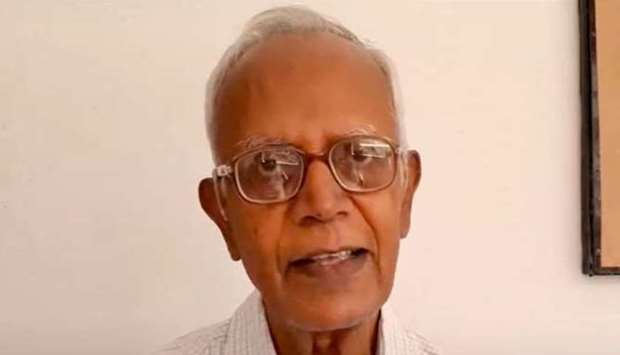An 84-year-old rights activist and Jesuit priest detained for nine months without trial under Indian anti-terrorism laws died yesterday ahead of a bail hearing, officials said.
Father Stan Swamy, who campaigned for marginalised tribal communities, was arrested last year for allegedly inciting violence between different Indian castes in 2018. He was denied bail despite suffering from Parkinson’s and other ailments.
He was admitted to hospital in May with coronavirus and suffered a cardiac arrest over the weekend.
Swami had been detained under the Unlawful Activities Prevention Act (UAPA), which effectively allows people to be held without trial indefinitely.
Prime Minister Narendra Modi’s government has made use of the law to have campaigners, journalists, students and others arrested, in what critics say is an attempt to silence dissent.
In February, the government said that almost 6,000 people were arrested under the UAPA between 2016 and 2019 and that 132 were convicted.
After Swami’s arrest along with academics, lawyers, scholars and a poet, his lawyers had to fight to get him a straw to drink with since he was unable to hold a glass because of his condition.
Mary Lawlor, UN Special Rapporteur on Human Rights Defenders, tweeted yesterday that his death in custody came “nine months after his arrest on false charges of terrorism”.
“Jailing HRDs (human rights defenders) is inexcusable,” Lawlor said.
Eamon Gilmore, European Union Special Representative for Human Rights, tweeted that Swamy was jailed “on unfounded charges”.
Mihir Desai, Swamy’s lawyer, said the priest had not been healthy at the time of his arrest.

Father Stan Swamy
